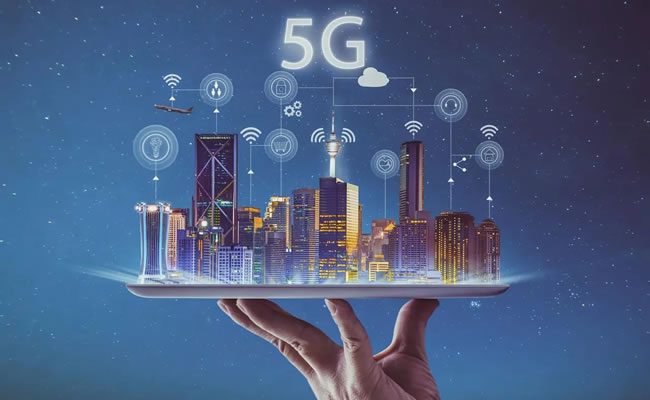
5G offers a significant jump in speed and performance over 4G/LTE with real-world speeds above 200Mbps and dramatic improvements.
Over the past two decades, mobile telecommunications has transformed the face of Sub-Saharan Africa, integrating hundreds of millions of people into the digital economy and creating a new industry worth billions of dollars a year.

Mobile technology has, according to the GSM Association, reached 1.2 billion connections and over 650 million unique mobile users in Africa.
Thanks to mobile technology, Sub-Saharan Africa has leapfrogged legacy voice and data networks, positioning itself at the forefront of innovations such as mobile money.
Now, with 5G, the fifth generation of GSM cellular technology bursting into the mainstream, Africa has another opportunity to take a technological leap.
Not only does 5G promise a far richer and faster consumer mobile broadband experience, but it will also be the bedrock on which organisations will build the digital economy of the future.
The speed at which operators around the world are building 5G networks is unprecedented. GSMA Intelligence forecasts that consumer 5G connections will raise increase from one billion at the end of 2022 to two billion by the end of 2025. This will make 5G as the fastest generational rollout of GSM tech to have been seen to date.
Africa cannot afford to get left behind. According to the GSMA, 5G has the potential to contribute $26 billion to Africa’s economy by 2030 when 5G will account for 20 percent of mobile connections in Africa.
The Association noted that 5G-related activities have begun to pick up across Africa, including spectrum auctions, pilots and commercial trials.
Should policymakers, regulators and network operators focus on accelerating 5G deployments across Africa, the economic dividends will be substantial.
One of the immediate benefits may come from deploying 5G as a fixed-wireless and mobile broadband access technology to offer higher speed internet to the many parts of Africa where fibre networks don’t reach.
In a world of hybrid and remote work, this could foster new economic opportunities for people across the continent. It could help to catalyse innovation in cloud computing as organisations start to create innovative, localised services and applications to empower individuals, businesses and communities in remote and underserved areas.
5G will also facilitate the digitalisation of sectors such as agriculture, healthcare, education and manufacturing, leading to increased productivity, job creation and entrepreneurship opportunities.
Higher speeds and lower latency of 5G networks will facilitate the adoption of next-generation digital technologies such as virtual/augmented reality, artificial intelligence and the Internet of Things (IoT).
YOU SHOULD NOT MISS THESE HEADLINES FROM NIGERIAN TRIBUNE
Shukroh Adeyemi is a first-class graduate of the Department of English, Lagos State University (LASU), for the…
Full list: Names of ex-governors receiving pensions in 10th Senate
No fewer than 13 former governors still receive pension allowances as serving senators in the…
Mmesoma’s father apologises, begs JAMB, Nigerians, to pardon daughter
Mr Romanus Ejikeme, the father of Mmesoma Ejikeme, the 2023 Unified Tertiary Matriculation Examination (UTME) candidate who…
Asisat Oshoala shortlisted for 2023 Ballon d’Or award
Nigerian football star and Super Falcons forward, Asisat Oshoala, has been named as a nominee for the…
3 lessons from the ethnicization of JAMB controversy
OVER the last few days, Irecoiled in horror and disgust as the fairly straightforward case of JAMB exam result fraud by…
Rahinatu Ibrahim, popularly called Ganga, recalled with nostalgia when she first embarked on her journey to the…







